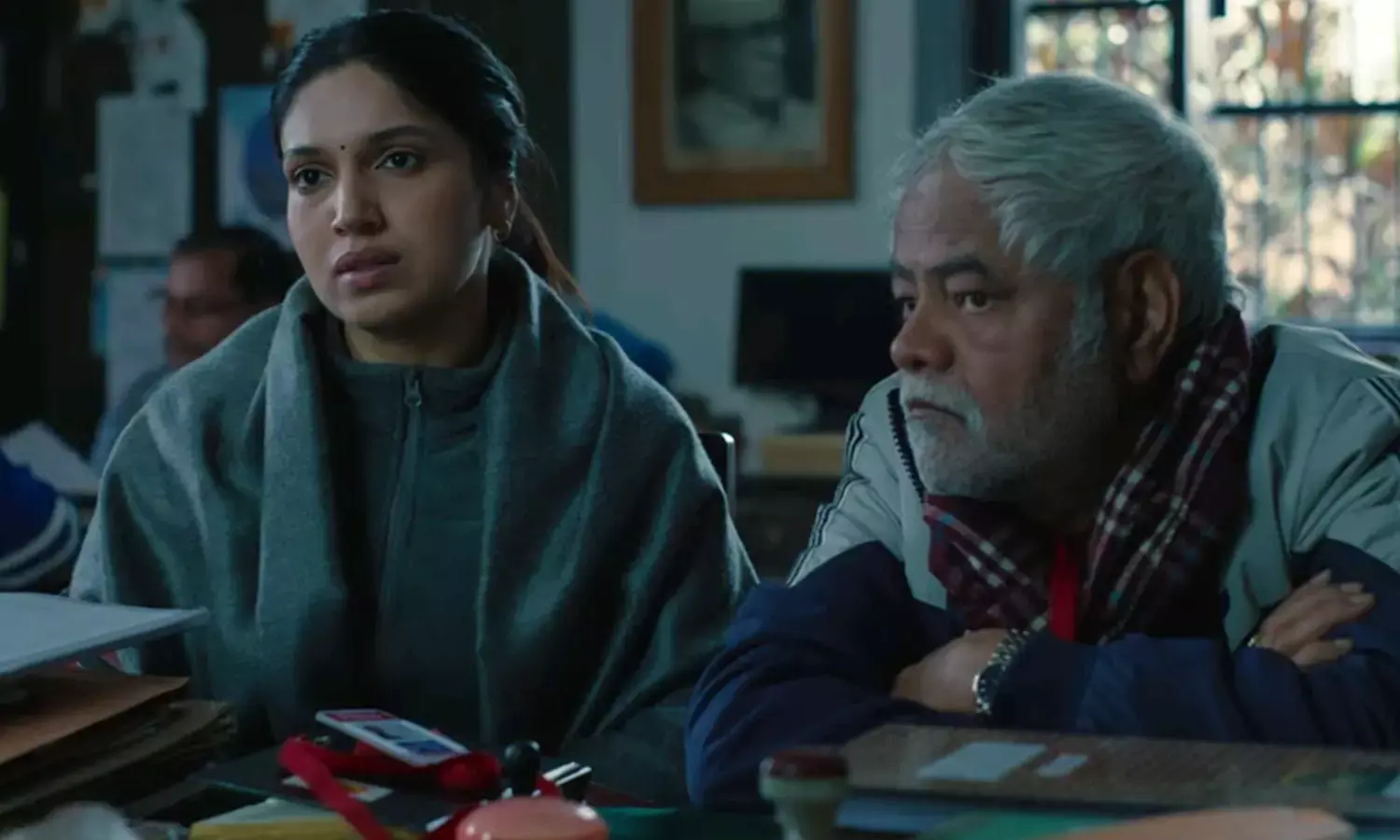Bhakshak: A Powerful Social Irony
In Bollywood, potent narratives often wilt in the shadows

In its portrayal of the condition of women, Bhakshak emerges a powerful film underscoring the detrimental effects of government-backed support systems as it reveals the perpetuation of suffering and being marginised by a patriarchal society.
The series is a grim and authentic portrayal, albeit with some fictional elements, of the notorious cases of child sexual abuse in 2018 at a girls’ shelter home in Muzaffarpur, Bihar. The scandal was uncovered by a social audit conducted by TISS Mumbai, which revealed the appalling crimes committed by the owner of an NGO managing the shelter home that was funded by the Bihar government’s social welfare department.
At the film’s outset, a man attempts to assault a girl forcibly taken from an orphanage. When she resists his advances, he callously applies chilli powder to her genitals. As the narrative progresses, the inability to save her leads to her tragic murder. This chilling scene epitomises the profound meaning behind the film’s title, Bhakshak (predator, devourer, consumer…)
The film introduces its main characters in the subsequent scenes: Vaishali Singh, an aspiring TV journalist aiming to establish her own successful TV channel, portrayed by Bhumi Pednekar; Bhaskar Sinha, a rookie cameraman dedicated to his craft, played by Sanjay Mishra; and Bansi Sahu, a seasoned journalist with deep political connections, played by Aditya Srivastava.
Vaishali and Bashkar, spurred by the social audit report, launch their own investigation despite Bansi Sahu’s opposition. Facing intimidation from Sahu’s associates (such as involving Vaishali’s husband and inviting them to his home), Bashkar proposes selling the news clip to a larger channel to mitigate their troubles. Yet Vaishali is resolute, driven by her empathy with the girls’ suffering, and remains determined to hear their stories firsthand. Her persistence pays off when a former cook from the Munawarpur shelter agrees to share her experiences in confidence and safety, having now found employment at the Hajipur shelter.
Through these scenes the film firmly establishes its women-centric perspective and highlights the various sufferings women endure. While the film primarily centres on the sexual assault of girls at the Munawarpur women’s shelter home, it also explores the experiences of women, particularly those who are married and childless.
Series director Pulkit addresses this theme in a poignant scene where Vaishali Singh returns home late at night after being pursued all day by Banshi Sahu’s goons. Despite her ordeal, she is expected by her husband to immediately prepare food, highlighting the patriarchal social expectations placed on married women. The film delves also into the social discomfort experienced by married, childless women through Vaishali’s verbal debates with her brother-in-law and sister.
Vaishali meanwhile continues her investigation, while Guptaji, the source of the social audit report, discreetly files a PIL to advance the case in court. In Munawarpur, the new female SSP, Jasmeet Kaur, earns recognition for her integrity. Vaishali and Bhaskar approach the SSP, stressing the gravity of the situation, and despite political pressure, Kaur pledges to act on any concrete evidence the duo can produce, which Vaishali eventually secures.
The film underscores the irony of public institutions – such as the head of the Child Welfare Commission involved in the assault overseeing the inquiry. It concludes with a powerful monologue by Vaishali, condemning today’s society for its loss of empathy in the social-media driven world, where we have become more self-centred, and forsaken justice. She says society has become the very destroyer of itself, losing sight of empathy and justice, and thus becoming the bhakshak.
While the film’s qualities shine brightly on many fronts, it maintains a singular focus, and is tethered to one case throughout. It deserves praise for bravely tackling the persistent issues entrenched in our male-centric society through this compelling case study. On viewing it, satisfaction washes over the viewer, buoyed by its resonant monologues that assert its moral principles firmly, and appeal to the passive masses entrenched in today’s social media-driven living.
It is saddening to see the series released solely on an OTT platform, especially when contrasted with the wide theatrical release and consequent box office triumph of films like Animal (based on violent toxic masculinity) – testament to our society’s skewed priorities and lack of seriousness to addressing social maladies.
In Bollywood, potent narratives like Bhakshak often wilt in the shadows, lacking the star power or production allure to catapult them to grand box office success. Films of paramount social importance, beyond the tireless efforts of actors like Ayushman Khurana or the directorial prowess of Anubhav Sinha, are relegated to mere formalities.
The depiction of marginalised groups—such as women, SCs, and STs—failing to ignite the fervour of box office success or public discourse lays bare the narrative rooted in apathy toward true social realities. The lack of star power, production buzz, and theatrical release behind movies such as these should be cause to reflect on our society’s broader disengagement from crucial societal engagements. In that context, Bhakshak stands as a stark reminder, cutting through the spectacle of lights and shows, to expose the glaring societal evils that persist in our times.
Chhotelal is a Junior Research Fellow at the Centre for Political Studies, JNU, New Delhi
Nidhi Choudhary has done her MA from JNU, New Delhi


